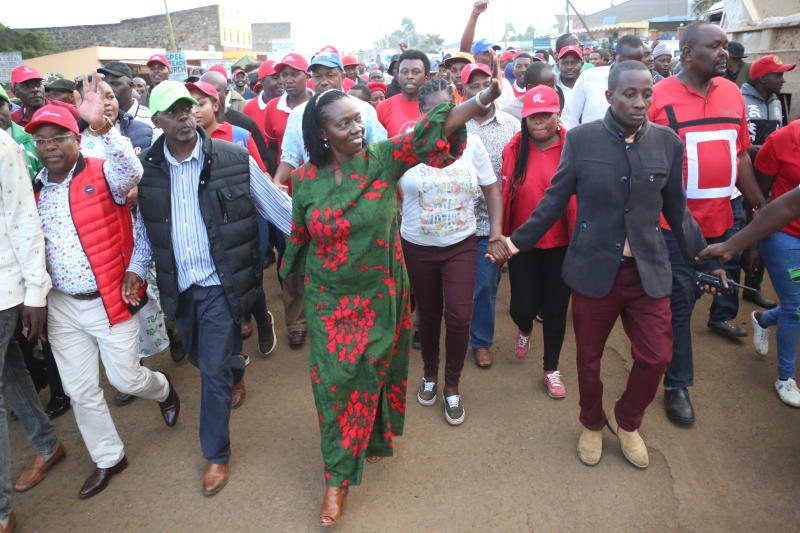×
The Standard e-Paper
Join Thousands Daily

Azimio la Umoja Deputy President nominee Martha Karua is not someone who needs to be convinced about her own ability. The trajectory of her political career underscores the position Ms Karua now holds - at the cusp of rising higher than any woman has risen in Kenyan politics.
The Narc Kenya leader was the spokesperson of Mt Kenya Unity Forum, an alliance of Mt Kenya region that also included Moses Kuria and Mwangi Kiunjuri. Then she joined One Kenya Alliance and later Azimio.